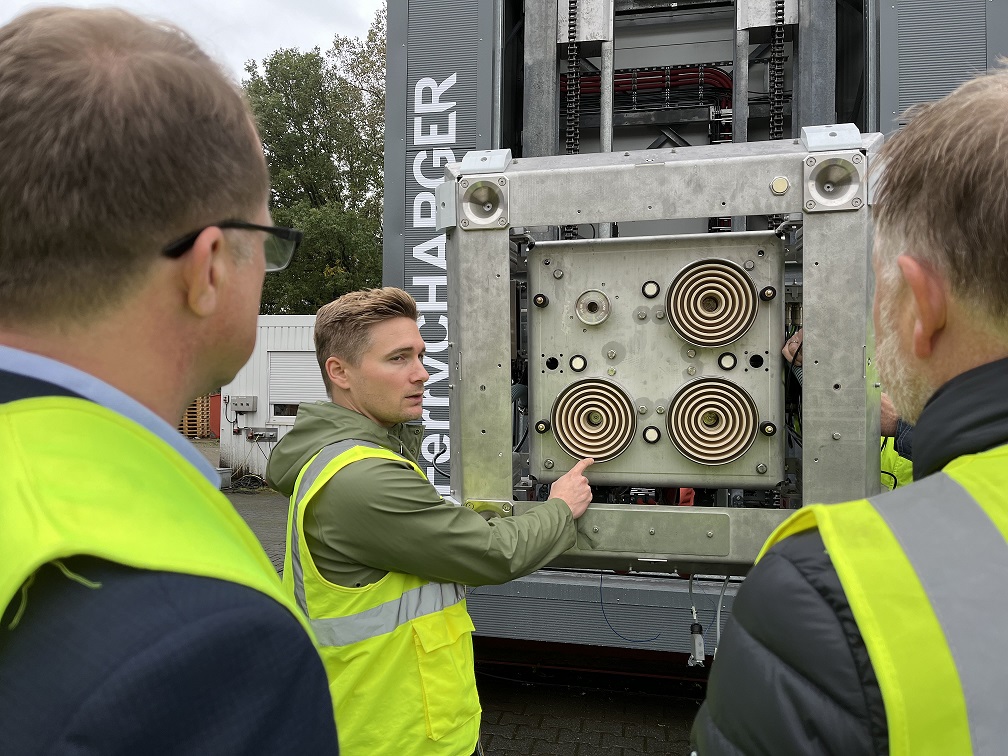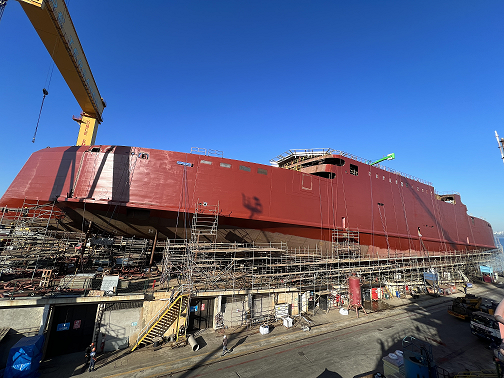Scandlines is constructing a zero direct emissions freight ferry, which will be deployed on the Fehmarn Belt between Puttgarden in Germany and Rødby in Denmark in 2024.
All 36 sections that make up the new Scandlines zero direct emissions ferry are welded together, with the exception of the bridge, which will be placed in the center of the vessel. The freight ferry has now been primed and the various compartments are gradually being filled with equipment.
As the ferry, which carries the working title PR24, will also be able to operate as a hybrid ferry, three gensets (a combination of a diesel engine and a generator for power production) from the manufacturer MTU have been installed.
However, the lithium-ion battery bank, from the Swiss manufacturer Leclanché and totaling 10MWh, will only be installed just before the ferry is delivered. The 8.6m-high ferry charger tower, developed by the German company Stemmann-Technik, is being prepared for installation on the mole edge at ferry berth 3 in Danish Rødbyhavn.
The system stores the latest position of the ferry, so it is expected that only minor adjustments to the position of the charging pantograph will be required for each ferry call. The ferry charging system is able to compensate for changes in water level and ferry movements.
 As the ferry approaches the berth, the charging station is activated, the tower gate opens automatically, and the charging plate extends. Once the ferry has moored in the berth, the charging pantograph connects to the onboard unit within a maximum of 15 seconds and starts charging the batteries. After charging, the tower gate rolls down again to protect the components from external influences. The transformer, control and switchgear equipment are already in place at the ferry berth in Rødbyhavn, and soon the ferry charger tower for the new ferry will also arrive.
As the ferry approaches the berth, the charging station is activated, the tower gate opens automatically, and the charging plate extends. Once the ferry has moored in the berth, the charging pantograph connects to the onboard unit within a maximum of 15 seconds and starts charging the batteries. After charging, the tower gate rolls down again to protect the components from external influences. The transformer, control and switchgear equipment are already in place at the ferry berth in Rødbyhavn, and soon the ferry charger tower for the new ferry will also arrive.
For more key shipyards and shipbuilding updates from the electric and hybrid marine technology industry, click here.



